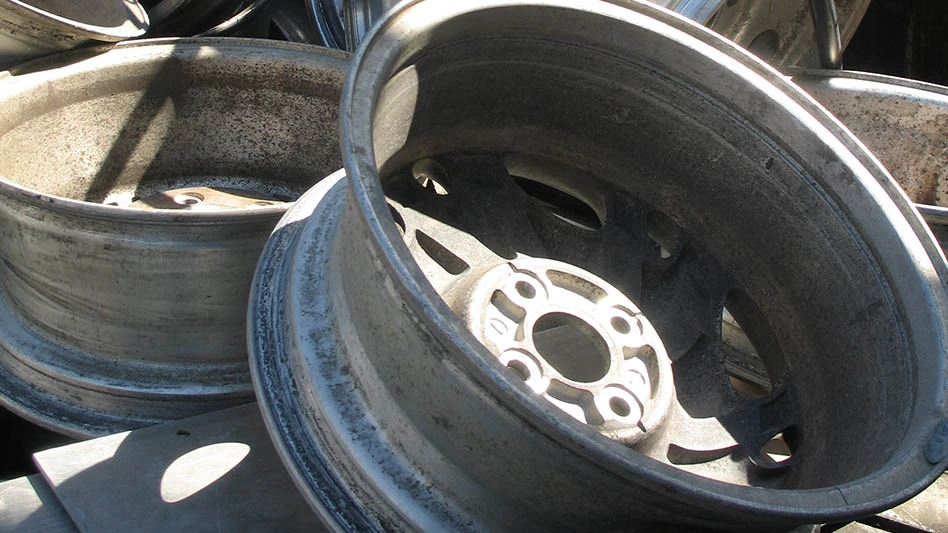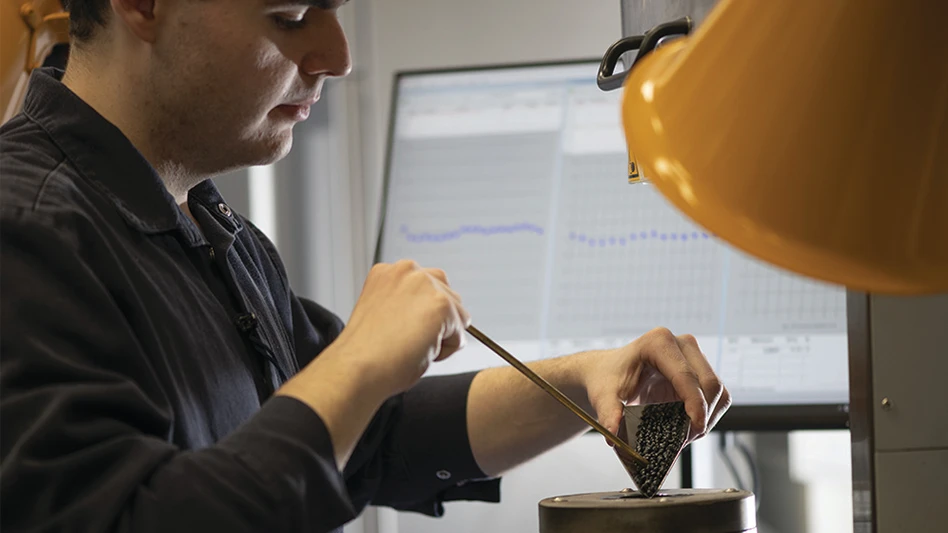Document destruction professionals discuss their tricks for cutting big city driving woes down to size.
To assist his drivers in wending their ways through congested city traffic, Dave Van Kerrebroeck, owner of the Mississauga, Ontario-based Mr. Shredder, decided to do his drivers in Toronto, the "New York of Canada," a favor and purchase a small shred truck. With 15 years in the document destruction business, Van Kerrebroeck learns fast. After just two months operating with the smaller truck, he traded it in. His drivers, he says, "didn’t want it."
Mr. Shredder had standardized its truck fleet, having used Shred-Tech MDS 25GT trucks for years. Van Kerrebroeck not only replaced the smaller truck, but also is upgrading his fleet of 12 trucks to Shred-Tech’s 35GT model.
While truck size may compromise driving in metropolitan areas, many document destruction firms say they would rather adjust their routes than sacrifice capacity and throughput.
ACHIEVING BALANCE
Noise complaints, time constraints, material stored in basements and upper floors lacking service elevators, payload limits on access to roads with weight and other physical restrictions are just a sample of what Accurate Document Destruction Inc. service techs run into in the Big Apple.
For example, when servicing four-story walk-ups, New York/New Jersey Client Sales and Services Manager Naomi Mulrine, says, "While this is financially compensated, it is not time efficient. And it’s virtually impossible to use containers or other equipment to aid in retrieval."
She adds, "Office park settings are usually ground-floor access, and if upper or lower floor retrieval is necessary, elevators are available."
Decreasing the size of Accurate Document Destruction’s two mobile shredding trucks would have a negative effect on capacity and throughput, Mulrine says.
NO PARKING
Fortunately, downtown San Francisco and its peninsular financial districts that Shred-it San Francisco services most frequently are relatively flat. At times, drivers of the six 24-foot company trucks do deal with the hills, but they adapt, says Customer Service Supervisor Bob Cinquini, adding that parking restrictions present the major dilemma for the company’s drivers. Though the company’s crews work 10-hour days, they are often limited to six hours of shred time in some locations, where parking is only allowed until 3 p.m. "There’s never enough parking," Cinquini says. "We don’t double park, try to be friendly to our neighbors and, whenever possible, use loading zones."
Currently, capacity is as important as throughput as the San Francisco Shred-it branch unloads its shredded material at a recycling facility. However, Cinquini says the company is in the process of adding baling to its operations. "With a baling facility at the branch, capacity may not be as important. We could dump anytime. Having to dump the truck mid-day creates a challenge."
Truck reliability is of prime importance, so Shred-it San Francisco plans maintenance on eight-week, yearly and bi-yearly schedules. "Maintenance is so important, keeping cost down, trucks on the road and revenue coming in," Cinquini says.
To service parts of Indiana, Wisconsin and all of Chicagoland, ACME Document Destruction, Chicago, chose two 5,000-pound capacity, single-axle trucks to maneuver in downtown traffic. Head of Maintenance Don Gierszewicz also says throughput is a bigger issue than capacity, as ACME has no problem with delivering paper to recycling facilities in the metro areas.
DEVELOPING A PATTERN
The Austin, Texas, metropolitan area includes such towns as Round Rock, Cedar Park, Georgetown and Wimberley. Generally, these downtown areas take longer to service, says Peter Kiely, owner of Austin-based Centex Shred, because of parking and traffic issues, and the size of the shredding truck can be problematic. "It’s painful at first. But it’s about routine and rhythm. You learn the most efficient way to maneuver to get to the customer. Once you do, it’s much smoother."
For the customers that Centex Shred services, security releases are
|
INVESTIGATING LEASING OPTIONS |
|
While many shredding firms in the market for a new truck know what kind of a truck they want, many may not know the potential benefits of leasing. Family-owned Intek Leasing, Roseland, N.J., has been leasing and financing shredding trucks and equipment such as balers and containers since 1986. Intek says its services are tailored to the needs of individual customers. The most difficult issue for a company in the document destruction industry can be its success, says Intek’s NAID (National Association for Information Destruction) Representative Paul Garfunkel. A large new account may require additional equipment. Lease financing can replace tying up lines of credit with a bank loan. "Intek Leasing provides an off-balance-sheet solution in the form of a lease, which, since we don’t report to credit bureaus, won’t affect the available and valuable credit position," Garfunkel says. Another benefit of leasing vs. purchasing is that lease payments can be written off as a business expense against tax. "Accountants love leasing as the last tax loophole," Garfunkel says. With its own motor vehicle department that handles the plate work for many states, Intek qualifies as one-stop shopping for many customers. Garfunkel says that most leasing companies, unlike Intek, don’t own trucks, but broker deals through various sources. "They generally don’t know how to handle rolling stock or the various state laws regarding vehicle registration and leave that work to the companies they pass the lease contract along to, which can make the plating process a bit tedious," he says. For customers that choose the lease-to-own option, Intek has typically written five-year leases with a $1 option. The company now offers a seven-year program to qualified lessees, exclusive to the mobile document destruction industry, for new mobile units. Lessees may not need advice on vehicle selection, though Intek’s staff discusses the need for quality trucks with lift systems and the capacity for speed and efficiency. |
"Throughput allows us to get from one place to another quickly," Kiely says. The truck’s capacity hasn’t been an issue except when reached within three hours during a large cleanout.
Kiely says that not leaving a purge job to "tump," or tilt and dump, the truck is preferable. But the recycling facility where Centex Shred offloads material is relatively close to downtown Austin. "We’re downtown frequently, so we work out routes in anticipation of when we need to ‘tump.’"
A daily and monthly routine of lubricating chassis grease fittings and periodically tightening the two stacks of shredder knives to assure an efficient shredding pattern are essential preventive measures for the company’s shred truck. In addition to regular preventive maintenance, Kiely learned the hard way that access to service is imperative to keeping the business up and running.
Two years ago when Kiely started Centex Shred and was "doing it all," he was commissioned to clean out a law firm storage facility. A tow chain in one of the boxes wasn’t detected until it was inside the shredder. At the time though, the closest place to service his shred truck was in Fort Worth, Texas. "What hurt was that we were down for three days. I had to drive the truck to Fort Worth and fly back while they ordered parts, which had to be overnighted from Canada," he says.
MAKING AN EXIT
When Zach Shea, owner of Kodiak Shredding LLC started out three and a half years ago servicing the state of Virginia from his Lynchburg, Va., office, he operated a second location in Washington, D.C., an area he says is saturated with shredding companies. "Price was a big factor, [and] service and security [were] secondary considerations," he says of the companies operating in the D.C. area. "We wanted to be someplace where we could be the dominant player. Our current market is in a smaller community, without room for a lot of operators, and parking is not a big issue."
Operating in downtown D.C. was very cumbersome, says Shea, and sometimes involved parking two blocks away and walking to clients’ offices. There was also the potential for parking tickets. Sitting on the beltway at 3 p.m. with an accident up ahead and three more stops scheduled also had a huge impact on the company’s operations, he says.
The contrast is marked, Shea says, between the office park environment, where all of the businesses have a back door or supply entrance, and the downtown area, where the unloading of a semi-trailer limits accessibility to the lone loading dock, causing a half-hour wait and money out of pocket.
As Shea has explored expanding his business, his focus has been on throughput. "The vast majority of customers are looking for one-stop shopping: the document management professional, not just a guy with a shred truck."
He has added baling to his operation to increase its efficiency and to eliminate long waits at the recycler’s scale. "Every morning I need to run with an empty truck. That’s why people need to bale their own material," he says.
Because capacity is not as much of an issue when servicing the Virginia market, Shea sold the truck he was using in D.C. He currently runs three shred trucks.
Regardless of the size of a secure document destruction company’s operating region, some issues always remain, such as hiring and retaining qualified drivers. While drivers with CDLs (commercial driver’s licenses) are plentiful, Shea says those with suitable backgrounds for a security-based industry who are also safe drivers capable of maneuvering large vehicles in tight metro areas are hard to find.
PREPARING TO ACCELERATE
Mr. Shredder’s Van Kerrebroeck says the major features he looks for in a shred truck are durability, overall cost of operation, speed of throughput and ground-tipping.
However, not everyone’s needs are the same, Van Kerrebroeck says. For a new, struggling company with inexperienced operators and no CDLs, smaller shred trucks may seem to be the perfect solution. "But it’s counterintuitive," he says. "You think its better to get the cheaper, smaller truck for maneuverability to start out, but the bigger one is better. We’d rather have a bigger truck that gets in and out faster than a small, maneuverable truck and sit there waiting for the paper to shred."
For companies just getting started, Van Kerrebroeck suggests building a pre-planning operations department for service in downtown areas into their business plans. "If drivers don’t know the city as well as the average taxi cab driver, be aware; it will cut into productivity."
Mr. Shredder’s pre-planning staff knows its operating region’s buildings—which have docks and parking issues—the time it takes to get from ground level to the clients’ offices and if security clearance is required with or without an appointment. Additionally, all of the company’s trucks are equipped with GPS. These logistics are more important, Van Kerrebroek says, than the size of truck. Without them, mistakes will continue to be made. "Some say we have too many people on staff, but they’re able to drive a great deal of efficient work out."
Capacity isn’t an issue for Van Kerrebroeck, who says he is satisfied with dumping material to be baled at his facility and returning to shred. "Trucks can only hold so much," he says, "without much variance between manufacturer."
Van Kerrebroeck adds, "All the manufacturers have done a good job of finding ways to condense the paper in the back of the truck, and that’s all you can ask." n
The author is a freelance writer based in Columbia, Mo. She can be contacted at clare@claritivity.com.

Explore the August 2007 Issue
Check out more from this issue and find your next story to read.
Latest from Recycling Today
- New recycling grant program launches in Massachusetts
- Tire Recycling Foundation names executive director
- Dock 7 named 2025 Exporter of the Year at New Jersey International Trade Awards
- Waste Connections reports ‘better than expected’ Q1 results
- Commentary: How EPR is transforming the packaging industry
- Acerinox names new North American Stainless CEO
- Greenwave closes 2024 books with red ink
- Steel Dynamics nets $217M on record shipments






